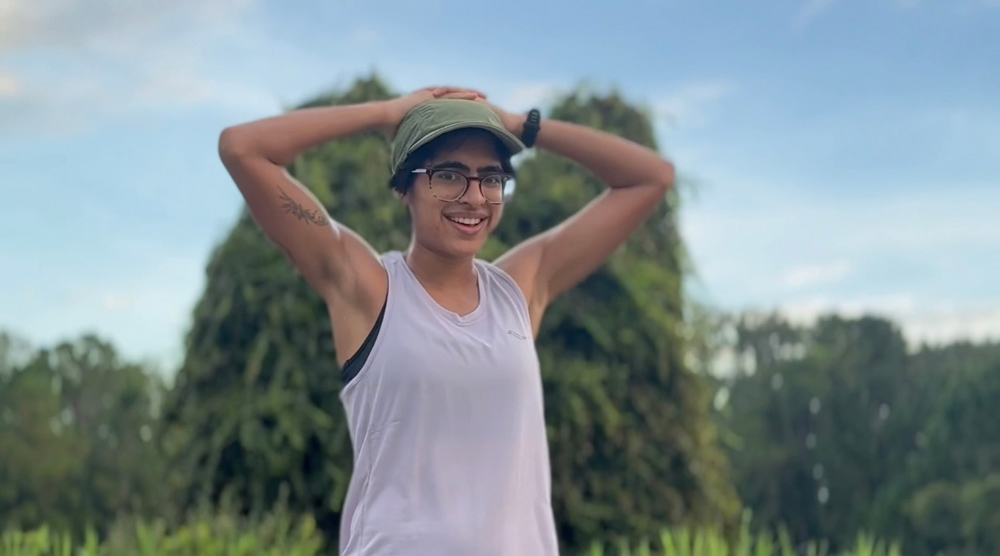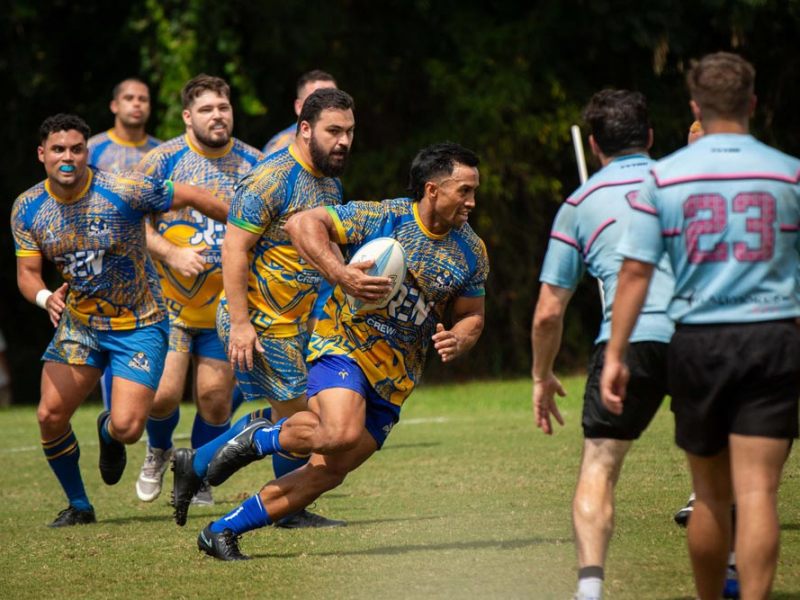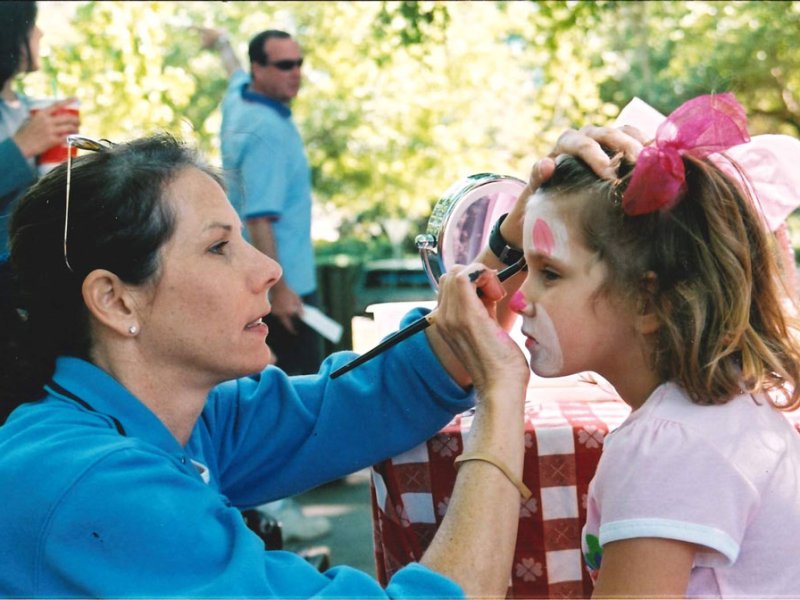Moving to Orlando three years ago to be closer to family was a decision that Simran Chugani didn’t take lightly.
A native of Pittsburgh who grew up in Minneapolis, the 25-year-old healthcare researcher and poet was used to their “very liberal bubble” that, as rudimentary as it sounds, felt safe and protective of their basic human rights.
Chugani, a transgender advocate who identifies as nonbinary and uses they/them pronouns, had seen headlines about Florida and the state Legislature’s efforts to degrade LGBTQ+ rights in recent years. Travel advisories were issued by groups like the Human Rights Campaign, warning queer people not to visit Florida due to the hostile political environment.
“When I first moved down here, I was very, very scared,” Chugani admits in an interview with Orlando Weekly. “I was hesitant to go to spoken word events. I was hesitant to go to events even put on by the queer community, because I was afraid of physical violence and threats of violence.”
But settling down in Orlando, and eventually connecting with LGBTQ organizations like The Center — once they got over their initial trepidation — was eye-opening. “It really changed the narrative for me in terms of saying, hey, there’s a lot more nuance here than I initially gave it credit for,” they say. Through connecting with the area’s diverse community, they “realized that there’s so much love and so much beauty in a state like Florida, even though it’s talked about so virulently in the media.”
Despite an influx of registered Republicans who moved to Florida during the height of the COVID-19 pandemic, Orlando has remained a relatively blue dot in an increasingly red state. It’s a city that prides itself on being inclusive and welcoming of LGBTQ residents — particularly since the 2016 mass shooting at Pulse, a gay nightclub — even as the state government has steadily chipped away at protections, including the basic right to use a bathroom that aligns with their gender identity.
Chugani, who today describes Florida as their “forever home,” recently authored a chapbook of poetry titled florida i love you violent, which they describe as a “love letter to the communities that hold resistance and joy in the same breath.”
As a way of giving back to the community that welcomed them with open arms, today Chugani is getting ready to run the annual New York City Marathon on Nov. 2, 2025, as part of an LGBTQ team organized by the nonprofit Point of Pride. Point of Pride, a trans-led organization headquartered in Oregon, provides direct support and financial assistance to economically-disadvantaged transgender people.
Chugani this year is part of the nonprofit’s charity team, which is raising funds for Point of Pride’s efforts to cover the cost of gender-affirming treatment for trans adults aged 18 and older, including gender-affirming surgery, hormone replacement therapy and permanent hair removal services.
“As a healthcare researcher, and just personally, like, my life goal — the one thing that I am devoting my life to is just improving access to care, improving access to spaces that are inclusive and improving the quality of healthcare for everyone,” Chugani says.
This is the second year that Point of Pride has organized a marathon charity team, not just to raise money, but to show that trans folks belong in all spaces — including athletics. “To return this year with another all-trans charity team is incredibly powerful,” says Chris Mosier, a Point of Pride board member and trailblazing professional trans athlete. “These athletes are breaking barriers and showing the world that trans people belong in every space, including major athletic events like this one.”
Point of Pride’s financial assistance for transgender people is available through five different grant programs that open up for specific periods throughout the year (with the exception of a garment program that’s open year-round). Their grant programs specifically serve transgender adults at this time, not minors, mostly because of the age requirements of healthcare providers they work with.
As of August, 27 states have passed laws restricting access to gender-affirming care for minors, while seven states (including Florida) prohibit state funds from covering gender-affirming care for anyone, including adults. According to Human Rights Watch, this prevents people on Medicaid or people who are incarcerated in these states from access to insurance coverage for gender-affirming care.
Gender-affirming care is, admittedly, a broad term that can in fact apply to medical treatments, such as hormone replacement, as well as social and psychological interventions, such as using the pronouns that align with a person’s gender identity.
While disparaged by some Republican lawmakers as “mutilation” and “chemical castration,” gender-affirming care is in fact supported by every major medical association, including the American Academy of Pediatrics and the American Medical Association.
Even so, not every healthcare provider is necessarily competent in providing affirming treatment for trans people, and research has found that roughly one-quarter of trans folks have admitted to avoiding visits to a doctor altogether, citing concerns about facing discrimination, harassment, or negative bias.
“Just going to a [primary care provider] appointment and not having to worry about potential bias or potential discrimination was game-changing for me,” Chugani says.
Although they have not sought gender-affirming medical treatment for their own transition journey — and say they don’t know if they ever will — Chugani asserts that being able to find a safe doctor through the LGBTQ community in Orlando has been paramount to their own comfort in seeking something so vital as medical care. “I have so much less anxiety going to get the appointments that I need.”
Chugani’s NYC marathon charity team is aiming to raise at least $25,000 for Point of Pride this year, to help ensure no trans person is unable to access affirming care due to financial barriers. (State and federal policies that dictate access to care is another battle — and Point of Pride does comply with all applicable state and federal laws.)
All runners on the five-person team, Chugani included, are tasked with raising $5,000 each. Chugani has already surpassed that $5K figure — to their delight and gratitude — but is still asking for donations to support Point of Pride’s mission.
Although they were raised in a more liberal state, they say they grew up in a “fairly conservative” household and empathize with the struggle of internalized transphobia and coming to terms with their identity. “There was definitely some friction in coming out to my family, but looking back now, like, my mom in particular is the biggest ally,” Chugani says.
While the political landscape in Florida has caused a majority of young LGBTQ Floridians to consider leaving the state — not to mention older adults, who face their own safety risks — Chugani says that, at least for now, they’re in it for the long haul.
“Finding a love with a place that actively says you’re not allowed here … finding that deep love and loving that place enough to call it home, to me, is a very radical act, and that, to me, is very revolutionary,” they say. “I get to define what my home is.”
Subscribe to Orlando Weekly newsletters.
Follow us: Apple News | Google News | NewsBreak | Reddit | Instagram | Facebook | Bluesky | Or sign up for our RSS Feed
Related Stories
‘Rugby is badass. Queer people are even more badass’
‘We needed families that looked like ours’
This article appears in Oct. 15-21, 2025.
Related




